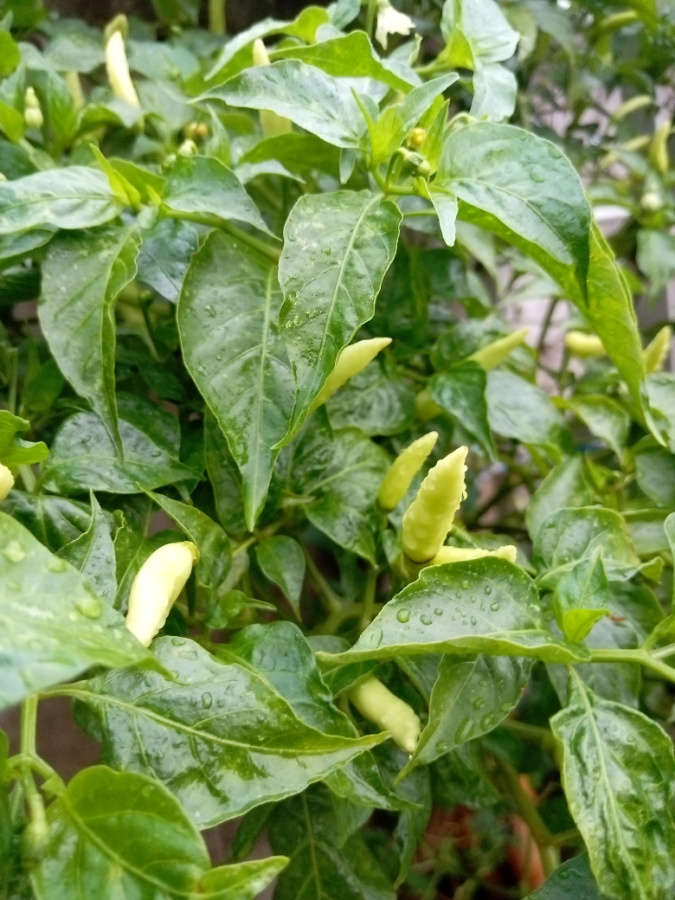Picking the Best Fertilizers for Peppers: Specialist Recommendations
Picking the Best Fertilizers for Peppers: Specialist Recommendations
Blog Article
Organic Vs. Synthetic Fertilizers: Which Is Best for Nurturing Healthy Pepper Plants?
In the world of supporting healthy pepper plants, the choice in between natural and artificial fertilizers stands as a pivotal choice with far-ranging effects. While both choices objective to supply vital nutrients to support plant development, the subtleties of their influence on the soil, plant health, and the environment trigger a discussion that mirrors throughout the gardening community. Understanding the distinctive benefits and potential pitfalls of each plant food type is important for pepper growers looking for to maximize their returns while maintaining a sustainable and eco-conscious method.
Advantages of Organic Plant Foods
Organic fertilizers supply a lasting and environmentally-friendly approach to nourishing pepper plants, giving necessary nutrients without using artificial chemicals. These all-natural fertilizers are stemmed from organic resources such as compost, manure, bone dish, and seaweed, advertising soil wellness and biodiversity. Unlike artificial plant foods, natural alternatives release nutrients slowly, making certain a well balanced and steady supply for pepper plants to grow.
One significant advantage of organic plant foods is their capacity to enhance dirt framework and water retention. By improving dirt health, organic plant foods advertise helpful microbial task, which aids in nutrient uptake by pepper plants. Furthermore, natural fertilizers minimize the risk of chemical run-off, shielding water sources from air pollution and securing the setting.
Moreover, natural fertilizers add to lasting soil fertility by advertising the growth of beneficial soil microorganisms. These microorganisms help damage down organic matter, launching nutrients in a kind that is easily accessible to pepper plants. best fertilizers for peppers. By promoting a healthy and balanced dirt ecosystem, organic plant foods sustain lasting pepper farming techniques that profit both plants and the setting
Downsides of Artificial Fertilizers
Synthetic plant foods, in contrast to their organic counterparts, position various drawbacks when used to nurture pepper plants, affecting both plant health and wellness and environmental sustainability. One major downside of artificial fertilizers is their propensity to leach nutrients from the dirt promptly.
In addition, the overuse of artificial fertilizers can add to water air pollution. Excess plant foods not soaked up by plants can remove into water bodies, resulting in eutrophication, where algae blooms diminish oxygen degrees in the water, harming marine life. Synthetic plant foods are normally obtained from non-renewable sources, such as fossil fuels, contributing to carbon exhausts and environmental destruction during their manufacturing.
Nutrient Absorption Comparison
When comparing synthetic and natural plant foods in terms of nutrient absorption, natural plant foods have the advantage of giving a more balanced and slow-release source of nutrients. Organic plant foods have a variety of macro and micronutrients that are not just valuable for the plants however likewise promote healthy and balanced dirt microbial task, which helps in nutrient uptake.
Furthermore, natural plant foods enhance dirt structure and water retention capacity, allowing pepper plants to access nutrients more effectively. This enhanced dirt top quality promotes origin development, enabling much better nutrient absorption. Artificial fertilizers, although originally enhancing plant development as a result of their high nutrient focus, might prevent lasting nutrient absorption by derogatory dirt health gradually.
Environmental Impact Considerations

On the various other hand, artificial fertilizers, although often even more promptly available and concentrated to plants, can have destructive impacts on the environment otherwise applied appropriately (best fertilizers for peppers). Their production calls for high energy inputs, bring about greenhouse gas discharges and adding to environment modification. Moreover, the drainage of excess synthetic plant foods can contaminate water resources, resulting in eutrophication and damaging water environments.
Ideal Plant Food Practices for Peppers
To accomplish this, it is vital to comply with finest plant food methods tailored to the particular needs of More about the author pepper plants. One essential practice is to carry out a soil examination prior to using any kind of plant foods.
One more essential method is to fertilize pepper plants at the best time. Normally, peppers gain from receiving best site fertilizer at planting and then once more when they begin to flower. Over-fertilizing can lead to nutrient imbalances and damage the plants, so it is essential to comply with suggested application rates.
In addition, selecting a balanced fertilizer with an NPK ratio that matches pepper plants' demands is essential. Organic fertilizers, such as garden compost or manure, can be superb options as they release nutrients gradually and enhance soil framework in time. However, synthetic plant foods can supply a quick nutrient increase when needed. Inevitably, integrating artificial and organic plant foods carefully can assist nurture healthy and balanced pepper plants while reducing ecological effect.
Final Thought

Organic plant foods offer a lasting and environmentally-friendly method to beneficial pepper plants, providing necessary nutrients without the usage of synthetic chemicals. click to read Unlike synthetic plant foods, natural options release nutrients gradually, guaranteeing a balanced and stable supply for pepper plants to prosper.
Artificial fertilizers, in contrast to their organic equivalents, posture various downsides when made use of to nurture pepper plants, impacting both plant health and environmental sustainability. When comparing natural and artificial fertilizers in terms of nutrient absorption, organic fertilizers have the advantage of supplying a more well balanced and slow-release source of nutrients.Additionally, organic fertilizers improve soil structure and water retention capability, enabling pepper plants to gain access to nutrients a lot more successfully.
Report this page